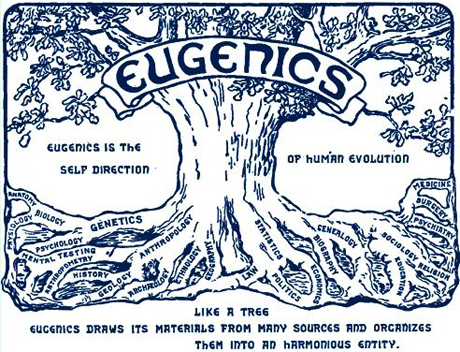Eugenics Board | Eastern North Carolina Now
Although the sterilization laws were passed in 1919 and 1929, the Eugenics Board was organized in July 1933. In four short months, the Board started receiving petitions to sterilize North Carolinians.

 included five members, who approved or declined petitions for sterilization. Although the Board members rotated in and out office with new gubernatorial administrations, the Board, at all times, included the Commissioner of Public Welfare, the Attorney General (or a staff attorney); the Secretary of State Board of Health; the Superintendent of the Raleigh State hospital; and a Superintendent of a State Hospital outside Raleigh.
included five members, who approved or declined petitions for sterilization. Although the Board members rotated in and out office with new gubernatorial administrations, the Board, at all times, included the Commissioner of Public Welfare, the Attorney General (or a staff attorney); the Secretary of State Board of Health; the Superintendent of the Raleigh State hospital; and a Superintendent of a State Hospital outside Raleigh.
|
The North Carolina Department of Health and Human Services is hosting a virtual meeting on Friday, March 1, 2024, for the Standardized Foster Care Trauma-Informed Assessment Workgroup.
Published: Friday, July 19th, 2024 @ 2:15 pm
By: Eastern NC NOW Staff
|
|
If we look back on our grade school education, we remember being taught the very fundamentals of what went on at the Constitutional Convention.
Published: Thursday, July 4th, 2024 @ 7:40 am
By: Diane Rufino
|
|
I don’t need to add anything to this as it stands on its own
Published: Thursday, July 4th, 2024 @ 7:38 am
By: Bobby Tony
|
|
Happy Anniversary America !! This year, 2011, celebrates 218 years since the British signed the Treaty of Paris in 1783, formally abandoning any claims to the United States.
Published: Thursday, July 4th, 2024 @ 7:35 am
By: Diane Rufino
|
|
There are many people who overlook the brilliance of the US Constitution. They argue that it is outdated and unfit to adequately govern such a modern nation as ours in the 21st century.
Published: Thursday, July 4th, 2024 @ 7:30 am
By: Diane Rufino
|
|
We all recognize the 4th of July as Independence Day - as the day we declared our independence from England. We celebrate the Declaration of Independence has since become our nation's most cherished symbol of liberty.
Published: Thursday, July 4th, 2024 @ 7:10 am
By: Diane Rufino
|
|
If you've ever traveled abroad you are asked this often. It's as if you are given an opportunity to "come clean" and "lay it all out on the table."
Published: Thursday, July 4th, 2024 @ 7:08 am
By: Stan Deatherage
|
|
RALEIGH — The North Carolina Department of Health and Human Services today released a multi-year Direct Support Professional Workforce Plan.
Published: Thursday, June 27th, 2024 @ 12:26 pm
By: Kevin Smith
|
|
Approximately 6,800 people in North Carolina have sickle cell disease, of which approximately 95% are Black or African American.
Published: Monday, June 17th, 2024 @ 4:50 pm
By: Eastern NC NOW Staff
|
|
After saying the six-foot social distancing guideline during the COVID-19 pandemic “sort of just appeared,” Dr. Anthony Fauci on Monday testified that his statement had been “distorted” and that it “actually” came from the Centers for Disease Control and Prevention (CDC).
Published: Monday, June 10th, 2024 @ 6:33 am
By: Daily Wire
|
|
The state Supreme Court has agreed to hear one of two pending cases involving North Carolina bar owners challenging Gov. Roy Cooper's COVID-related shutdowns in 2020.
Published: Sunday, June 9th, 2024 @ 3:21 pm
By: Carolina Journal
|
|
Former White House medical advisor Anthony Fauci changed his view of COVID vaccines from 2021 to 2024, clips show.
Published: Sunday, June 9th, 2024 @ 1:01 pm
By: Daily Wire
|
|
Every year on June 6, our nation pauses to remember the thousands of brave Americans and American allies who stormed the beaches of Normandy to launch the campaign to liberate Europe from the oppression and extermination by the Nazi regime in World War II.
Published: Thursday, June 6th, 2024 @ 5:48 am
By: Diane Rufino
|